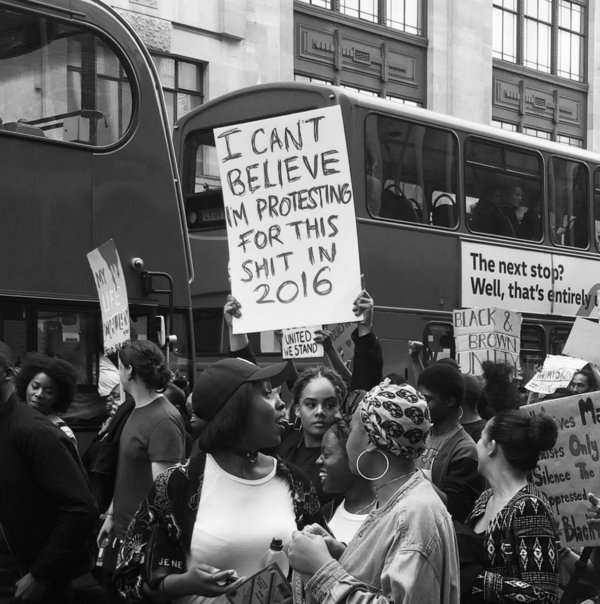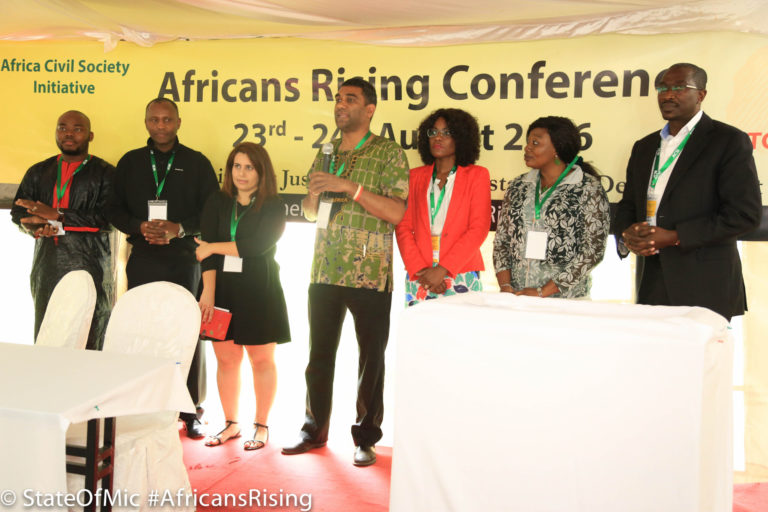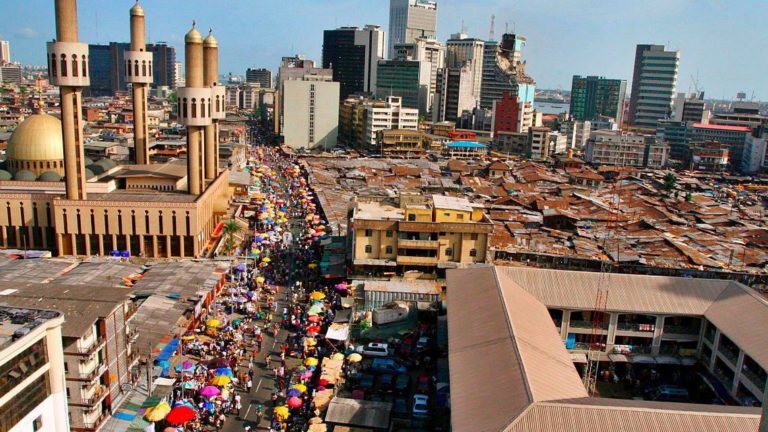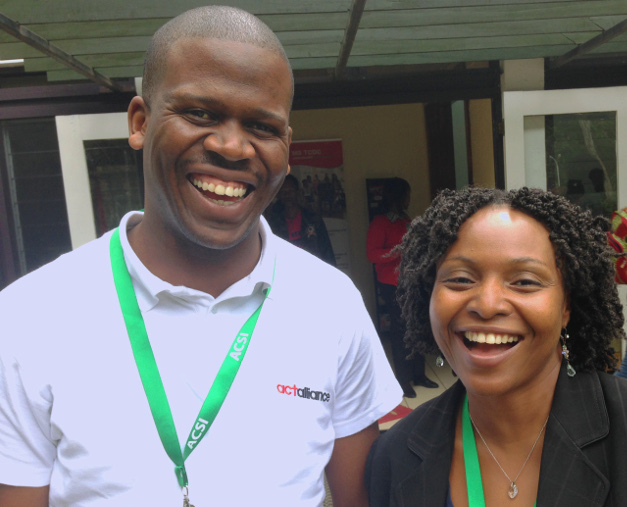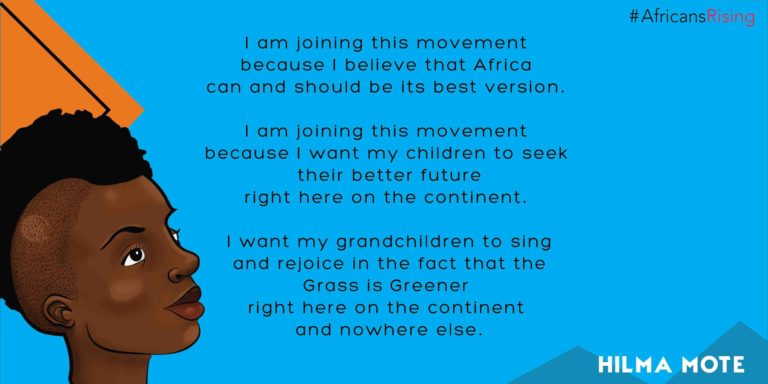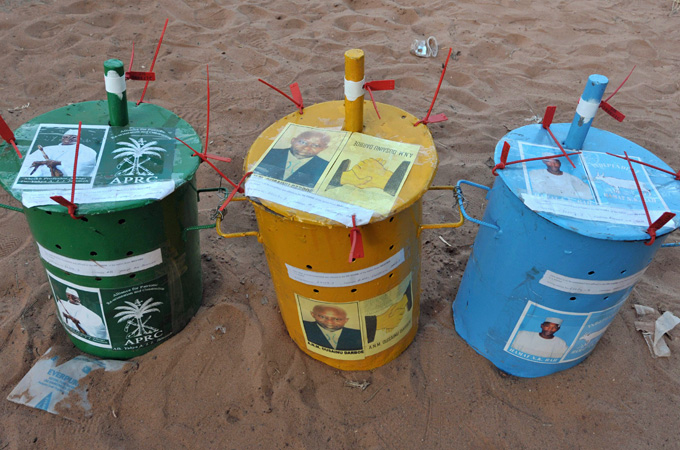President Yoweri Museveni announced in Parliament in May 2018 that the introduction of this tax was meant to discourage the spread of “gossip” and earn revenue from the use of foreign social media apps. Since July 1st, the repressive laws which were passed by the ruling party dominated parliament imposes 200 Ugandan shillings ($0.05) levy daily for users to gain access to Facebook, Twitter, Instagram, and WhatsApp.
Thousands of Ugandans have been protesting for the past week and the hashtag #ThisTaxMustGo has been trending in the country. To get the perspective of the activists in Uganda, Africans Rising for Justice, Peace & Dignity engaged two activists working with other Ugandan youths to advocate for the abolishment of both the Mobile Money and Social Media tax laws.
Africans Rising Speaks to Ugandan Activists on Social Media & Mobile Money Tax

Andrew Karamagi Uganda based lawyer
Africans Rising: What is the general impression the government has created with the introduction of new taxes?
Andrew Karamagi: The new taxes have painted a picture of desperation, discord, and profligacy on the part of the regime. This especially because the Minister of Finance Matia Kasaija said he didn’t know how the tax was passed by Parliament; the President, Yoweri Museveni, who also contradicted his Cabinet and himself by saying that the percentage levied on Mobile Money transactions should have been 0.5% and not 1% as contained in the Bill which he assented to by appending his signature. For his part, the junior Finance Minister David Bahati distanced himself from having participated in the conception of the tax. Disturbed by the public opprobrium, a ruling party legislator, James Waluswaka (who represents Bunyole West constituency) said that “…if you do not want to pay tax, you just go and die!”
This level of dissonance has worsened the impression about the taxes in an already outraged population. Matters were not helped by the lead story of the state-owned New Vision newspaper which reported shortly after the tax came into effect that allowances and perks for parliamentarians and public servants had been increased by up to 74%.
Africans Rising: How is the law being enforced?
Andrew Karamagi: In essence, the amendment to the Excise Duty Act of 2018 creates a direct tax. The law is enforced by requiring telephone service subscribers to make a daily payment of two hundred shillings ($ 0.054) to access social media sites—telecoms are under obligation to restrict access until a subscriber has made the payment.
For Mobile Money transactions, tax deductions are made on deposits, transmission, and withdrawals. The regime has relented and lifted the deduction imposed on deposits but this has not quelled the disquiet because the 1% deduction is unconscionable and the purported removal of the tax on deposits does not mean anything since one subscriber’s payment to another subscriber amounts to a deposit on another subscriber’s Mobile Money account.
Africans Rising: How are citizens reacting to the law?
Andrew Karamagi: Reactions have been varied and broad but nearly unanimous in their collective opposition to the law. Some subscribers have withdrawn all their money and banked it or resorted to making physical (as opposed to virtual) payments since it is, in fact, cheaper; others have left social media platforms, while a significant number has resorted to using Virtual Private Networks to remain online and bypass the tax requirement. A small but significant number have boycotted telephone networks altogether as a protest action, opting to purchase SIM Cards from neighbouring countries and rely on modems (MiFis) or WiFi access points instead of buying data bundles.
The law has attracted disdain; a number of ruling party parliamentarians or regime functionaries have been attacked online and in some public forums. Sections of the religious (born-again Christians especially) have praised the law saying it will cut down on access to pornography which has “destroyed families” and “corrupted the morals of the youth.”
Africans Rising: What is your personal contribution towards the struggle?
Andrew Karamagi:
- Participated in drafting the petition before the Constitutional Court of Uganda;
- Drafted media statements that have been issued by the Young Leaders’ Forum;
- Boycotted the use of data bundles and deleted social media applications from my phone;
- Participated in peaceful protest actions against the law;
- Given media interviews and taken part in talk shows discussing matters pertaining to the taxes;
Africans Rising: How are people fighting back?
Andrew Karamagi: As indicated in the foregoing, citizens are fighting back through a number of ways, including but not limited to:
- Boycotting data bundles and minimizing, or reducing their use of voice calls;
- Swearing affidavits in support of court petitions against the law;
- Offering pro bono legal counsel for arrested persons and the case before the court;
- Offered advice on how to bypass the tax requirement by using Virtual Private Networks;
- Speaking up against the tax in public and closed forums;
- A group of popular musicians and artists (like comedians) have also formed a coalition against the tax and are mobilizing widely against the tax;
- A number of Ugandans in the Diaspora have decided not to make further remittances until the tax is rescinded.

Regina Asinde, Ugandan Women Rights Activist
Africans Rising: What is the general impression the government has created with the introduction of new taxes?
Regina Asinde: The general impression is that the government has failed and is on its last legs struggling to survive. We have an inflated government that spends massively without caring about the taxpayer. This OTT and mobile money tax exposed the undersides of the government, a clear indication that our leaders don’t care about the ordinary person and they are only out to cater for their needs. When the people rose up in resistance, the president had the audacity to deny the tax and ‘commanded’ that they be removed, the MPs now are just debating the tax claiming that they didn’t know what it was prior to passing it, a clear picture that they only do what someone tells them without thinking through it. Why would a parliament debate a law they have passed a few weeks back? How can a legislature stand and say that they didn’t know what exactly the law said before passing it?
Africans Rising: How is the law being enforced?
Regina Asinde: One cannot access social media (Facebook, Twitter, WhatsApp, Instagram etc.) either on their phones or laptops unless they have paid the tax. The tax is paid through Mobile money. You can pay 200 for 12 hours, 1400 for a week or 6000 for a month. Mifi and Wifi spots also have to pay the tax. For the mobile money tax, each time you send money or withdraw through mobile money, you are charged 1% of the transaction amount.
Africans Rising: How are citizens reacting to the law?
Regina Asinde: The citizens are infuriated about the taxes. There have been a number of protests against the taxes with some activists arrested. Most of the people have resorted to using VPN even though the government has threatened to block most VPN servers. There has been a general public outcry against the taxes especially the mobile money tax.
Africans Rising: What is your personal contribution towards the struggle?
Regina Asinde: We are planning action against the law. Though I have also participated in some of the actions which have already been organised.
Africans Rising: How are people fighting back?
Regina Asinde: Most people have boycotted the mobile money service in protest of the tax. Most people are using VPN to access social media. Some have outrightly refused to pay the taxes and have resorted to not accessing social media.
—-
Written by Prince Akpah
For Media queries contact media@africans-rising.org

